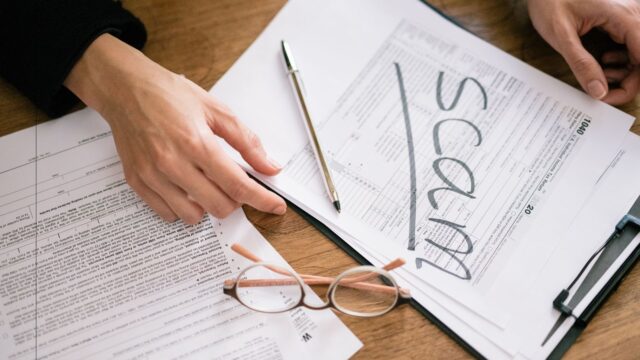
In recent years, there has been an uptick in reports of a certain kind of scam. This scam typically starts with a call from someone claiming to be from the IRS, or another government agency. The caller says that you owe money to the agency and must pay immediately to avoid arrest or other consequences. They will often threaten legal action if you don’t comply.
These scammers are very convincing, and many people have fallen victim to their schemes. One common thread among these scams is that the caller will ask for payment in the form of a gift card or wire transfer. They will give instructions on how to purchase the cards or make the transfer. Once they have your payment information, they will quickly drain your account before you have a chance to realize what has happened.
Unfortunately, these types of scams are becoming more and more common. In this blog post, we will investigate one particularly prevalent scam: the Payne Richards & Associates scam. We’ll look at how this scam works, how to protect yourself from it, and what to do if you’ve already been a victim.
How the Payne Richards & Associates Scam Works
The Payne Richards & Associates scam typically starts with a phone call from someone claiming to be from the IRS. They say that you owe money to the agency and must pay immediately through a gift card or wire transfer. If you refuse to pay or ask too many questions, they may threaten arrest or legal action.
These scammers are very convincing, and they often use high-pressure tactics to get victims to comply. They may also claim that you are eligible for a grant if you make a payment immediately. Many people have fallen for this scam and lost a significant amount of money as a result.
It’s important to remember that the IRS will never call you out of the blue and demand immediate payment through a gift card or wire transfer. If you receive such a call, it’s almost certainly a scam. Hang up immediately and do not give them any personal information or money.
How to Protect Yourself from This Scam
If you receive a call from someone claiming to be from the IRS, hang up immediately—do not engage with them in conversation. If you think you may owe taxes, call the IRS directly at 1-800-829-1040 to speak with an agent about your situation. Do not give out personal information or money to anyone who calls you unsolicited—even if they claim to be from the government.
You can also report these calls to the Federal Trade Commission (FTC). The FTC keeps track of these complaints and uses them to build cases against scammers. Every complaint helps—so even if you didn’t fall for the scam, please report it anyway so that others can be protected in the future.
If You’ve Already Been Scammed…
If you have already been scammed by someone claiming to be from Payne Richards & Associates, contact your bank or credit card company immediately and tell them what happened so that they can cancel any unauthorized transactions and protect your account information. You should also file a police report so that authorities are aware of this activity in your area and can take steps to stop it.
Lastly, please report any suspicious calls or messages claiming to be from Payne Richards & Associates (or any other company) to the FTC at ftc[dot]gov/complaint . Your complaint will help authorities catch these criminals and bring them to justice—and it will help protect others from becoming victims in the future.”
Conclusion:
The best way to protect yourself against this kind of scam is to simply hang up if you receive an unsolicited call from someone claiming to be from Payne Richards & Associates (or any other government agency). Do not engage with them in conversation and do not give them any personal information or money—even if they threaten arrest or legal action. If you think you may actually owe taxes, call the IRS directly at 1-800-829-1040 instead of giving out any information over the phone.”


































